#modern rice mill machinery price
Explore tagged Tumblr posts
Text
What Makes a Reliable Non-Basmati Rice Manufacturer?
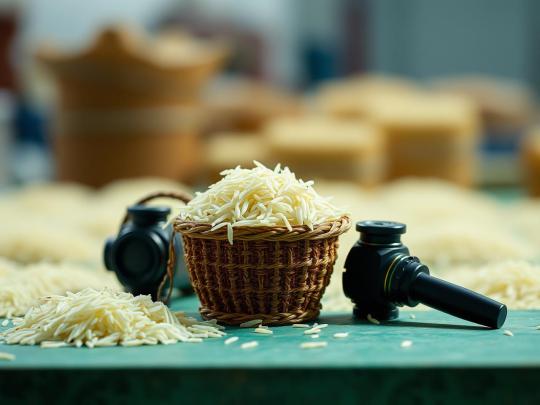
Non-basmati rice is a staple food in many countries due to its affordable price, versatility, and varying grain sizes. From long-grain to short-grain varieties, it serves as the backbone of countless meals. But what’s the difference between an ordinary supplier and a reliable manufacturer when it comes to non-basmati rice? For wholesalers, retailers, and even consumers, choosing the right rice manufacturer can make a huge difference in quality, consistency, and long-term relationships. This blog will explore the key factors that ensure you’re sourcing from a trustworthy non-basmati rice manufacturer.
Quality Control Practices and Certifications
The foundation of any reliable rice manufacturer is its commitment to quality. Manufacturers with strict quality control processes ensure that each batch of rice meets specific standards for purity, grain length, moisture content, and taste. Look for manufacturers that adhere to international certifications such as ISO 9001 for quality management and HACCP (Hazard Analysis and Critical Control Points) for food safety. These certifications ensure that the rice is produced under clean conditions and undergoes rigorous testing to remove impurities.
Additionally, quality manufacturers often employ state-of-the-art testing laboratories that analyze rice for contaminants such as pesticides, aflatoxins, and heavy metals. This commitment to food safety ensures that you are getting a premium product that meets global standards.
Consistent Supply and Scalability
A reliable non-basmati rice manufacturer must be able to meet consistent demand, whether you are a small retailer or a large-scale distributor. This means maintaining adequate stock, having capacity for large orders, and increasing production as needed. Manufacturers with extensive farming networks or partnerships with multiple farmers can better guarantee stable supply throughout the year, regardless of seasonal fluctuations.
Scalability is especially important for businesses looking to expand into new markets. A trustworthy manufacturer will have the flexibility to adjust production volumes to align with your growth, ensuring a smooth supply chain even during peak seasons.
Technological advancements in milling and packaging
Modern rice milling and packaging technology plays a key role in maintaining the quality and shelf life of non-basmati rice. Reliable manufacturers invest in advanced milling machinery that reduces broken grains and preserves the natural texture and flavor of rice. Look for manufacturers that use automated sorting technologies to remove discolored or damaged grains, ensuring a more consistent product.
Packaging also matters. Vacuum-sealed or air-tight packaging helps preserve freshness and prevent moisture ingress, which can lead to spoilage or insect infestation. Manufacturers that adopt innovative packaging solutions help ensure that their rice reaches consumers in optimal condition.
Sustainable and ethical sourcing
As consumers and businesses are becoming more aware of sustainability, it is important to work with a manufacturer that values ethical sourcing. Reliable manufacturers prioritize environmentally friendly farming practices, such as minimizing the use of chemical pesticides and adopting water conservation methods. Some manufacturers also support small-scale farmers by offering fair trade agreements, ensuring that local communities benefit from their involvement.
Sustainably sourced rice also tends to be higher in quality, as the plants are grown in healthy soil, without an excessive reliance on synthetic chemicals. Look for manufacturers that openly share their sustainability initiatives or hold certifications such as Fairtrade or Organic to further validate their commitment to ethical practices.
Customer Support and Global Reach
Strong customer support is the hallmark of any reliable non-basmati rice manufacturer. A good manufacturer should provide clear communication channels, timely responses to inquiries, and efficient problem-solving when issues arise. This level of support fosters trust and ensures a seamless business relationship over time.
Additionally, manufacturers with a global reach and experience exporting rice to multiple countries are better equipped to handle the complexities of international shipping, customs regulations, and regional preferences. A manufacturer with a proven export track record can provide invaluable guidance, especially for businesses looking to expand internationally.
Choosing the right non-basmati rice manufacturer isn’t just about considering price. Quality control, supply continuity, technological advancements, consistency and customer support all play a vital role in ensuring you get a great product. By partnering with a reliable manufacturer, you can guarantee that your business will thrive and your customers will be happy.
2 notes
·
View notes
Text
Complete Guide to Setting Up a Rice Mill Plant: Machinery and Costs

Based on the quantity of paddy (the raw form of rice) procurement, you can decide to establish a justifiable capacity rice mill or set up a mini rice mill.
Location: The place for establishing the rice mill is crucial. Be clear with your choice, whether in an industrial area, city, or village panchayat limits.
Estimated Cost: As per your project report, determine the approximate cost for setting up mills. The price depends on various factors such as capacity, technology level, raw material, personnel hired, and land capital.
Permissions and No Objection Certificates: To start a rice mill plant, you need to obtain various licenses and permits from state government authorities. These include:
District collector’s NOC (including industrial conversion of land)
Approval from the concerned local body municipality
Permissions from the electricity board (minimum 100 kV and separate transformer)
Approvals from the town or city planning commission
Let’s delve into the details of the requirements:
Company Registration: Register your company as one of the business entities available in India, such as:
One Person Company (OPC)
Limited Liability Partnership (LLP)
Private Limited Company (PLC)
2. Udyog Aadhaar MSME Registration: Classify and recognize your business organization as micro, small, or medium.
3. Factory/Trade License: Required for any new business, it regulates specific laws for a designated locality, laid down by the state government but issued by a municipal corporation.
4. No Objection Certificate (NOC): Obtainable from the Pollution Control Board. Apply under the Rice-Milling Industry (Regulation) Act 1958.
FSSAI License: Required as rice is categorized under the food industry.
GST Number: Mandatory for every business, it facilitates doing business in India and at the interstate level.
The primary raw material for rice mills is paddy, which determines the quality of the rice. It is recommended to purchase from paddy growing areas, known as paddy belts, for cost-effectiveness. Decide whether to buy paddy directly from farmers or the market yard, as this requires special skills to avoid being misled by traders, which could result in losses. After procurement, preserving the raw material supplies is essential to maintain production throughout the year.
Machinery: This is a significant aspect of setting up a rice mill. Procuring modern machines and their establishment demand a considerable portion of the total budget. Without efficient rice mill machinery, the business will not be sustainable in the long run. Depending on the size of the rice mill, choose from various options available in the market. Sona Machinery offers a comprehensive portfolio of process-engineered, high-capacity, energy-efficient complete rice mill plant solutions. Factors determining the selection of machinery include production rate, efficiency, power equipment, and whether it has single-stage or multi-stage execution. Some essential machines include:
Grading machine
Grain dryer
Paddy husker machine
Paddy separator
Rice cleaning machine
Rice color sorter
Rice de-stoner machine
Rice polishing machine
Rice whitener machine
Material Handling Equipment
Sona Machinery’s Turnkey Rice Mill Solutions: These offer a complete solution for your rice mill with several benefits, including:
Cost-effective pricing
Customized range of products
Strong research and development
Timely delivery
A dedicated team of professional experts
By considering these factors, you can establish a successful rice mill business.
0 notes
Text
Rice Exporters, Manufacturers, and Suppliers in India - Badani Corporation

India stands as one of the world's largest producers and exporters of rice, renowned for its diverse range of high-quality varieties. Among the leading names in the industry, Badani Corporation has established itself as a prominent rice exporter, manufacturer, and supplier, delivering top-grade rice to global markets. With a commitment to quality and customer satisfaction, Badani Corporation has become a trusted name for sourcing premium rice from India.
A Rich Legacy of Quality and Excellence
Founded with a vision to provide the finest rice to customers worldwide, Badani Corporation has a rich legacy of excellence. The company's deep-rooted experience in the rice industry allows them to understand the nuances of cultivation, processing, and packaging. Over the years, Badani Corporation has developed a robust supply chain network, ensuring that their products meet international quality standards and are delivered on time.
Diverse Range of Rice Varieties
One of the key strengths of Badani Corporation is its extensive portfolio of rice varieties. India is home to a diverse range of rice, each with its unique aroma, texture, and flavor profile. Badani Corporation offers a wide selection, including Basmati, Sona Masoori, Ponni, and more. Basmati rice, known for its long grains and fragrant aroma, is particularly popular among international customers. The company's Sona Masoori and Ponni rice are also highly sought after for their versatility and taste.
State-of-the-Art Processing and Packaging
Badani Corporation is equipped with state-of-the-art processing facilities that ensure the highest quality standards are maintained throughout the production process. The company's rice mills are equipped with modern machinery for cleaning, milling, and polishing rice, ensuring that each grain is free from impurities and has a uniform texture. Furthermore, the company employs advanced packaging techniques that preserve the freshness and nutritional value of the rice, ensuring that it reaches customers in perfect condition.
Commitment to Sustainability and Ethical Practices
In an industry where sustainability is becoming increasingly important, Badani Corporation takes pride in its commitment to environmentally friendly and ethical practices. The company sources rice from farmers who employ sustainable farming techniques, ensuring minimal impact on the environment. Badani Corporation also emphasizes fair trade practices, offering fair prices to farmers and supporting their livelihoods. This commitment to ethical practices not only enhances the company's reputation but also ensures a steady supply of high-quality rice.
Global Reach and Customer Satisfaction
Badani Corporation's dedication to quality and customer satisfaction has earned them a loyal customer base worldwide. The company's rice products are exported to various countries, including the United States, Europe, the Middle East, and Africa. With a strong logistics network and efficient supply chain management, Badani Corporation ensures timely delivery and consistent quality. The company's customer-centric approach, coupled with its focus on quality, has made it a preferred choice among international buyers.
Conclusion
As one of leading rice exporters, manufacturers, and suppliers in India, Badani Corporation continues to uphold its reputation for delivering premium quality rice. The company's diverse product range, state-of-the-art processing facilities, and commitment to sustainability and ethical practices make it a standout player in the global rice market. Whether you're looking for aromatic Basmati rice or versatile Sona Masoori, Badani Corporation offers the finest selection to meet your culinary needs. With a strong emphasis on quality and customer satisfaction, the company remains a trusted partner for rice importers and distributors worldwide.
#best basmati rice exporters in India#top rice manufacturers in India#leading rice suppliers in India#organic rice exporters from India#Indian rice suppliers for international markets#premium quality rice manufacturers in India#bulk rice suppliers in India#sustainable rice exporters India#Indian non-basmati rice suppliers#certified organic rice manufacturers India#top Indian rice brands for export#rice export company in India#rice millers and exporters in India#Indian rice varieties for export#Indian rice exporters list
0 notes
Text
Agriculture Equipment Manufacturers in India | Farm Equipment |Garden Equipment - Vinglob Greentech

Agriculture Equipment Manufacturers in India | Farm Equipment| Garden Equipment — Vinglob Greentech
Agriculture Equipments
Vinglob Greentech also provides services to the agricultural business on a significant scale. Modern tools/machines are employed in the agriculture field as technology advances.
Farming Equipments
Farm machinery is available to satisfy the demands of farming operations.Identifying the various types of farming machinery you may require to make your operations more efficient can be frustrating.
Gardening Equipments
We offer our clients a wide range of Garden tools under Garden Tools Category. Made using sophisticated technology, we offer these at competitive prices.
Quality Assurance
We provide Quality product for all kind of equipments. Giving 100% quality to our clients is our primary motto
OUR PRODUCTS
1. AGRICULTURE-SPRAYER

2.ANIMAL FEED PALLET MACHINE
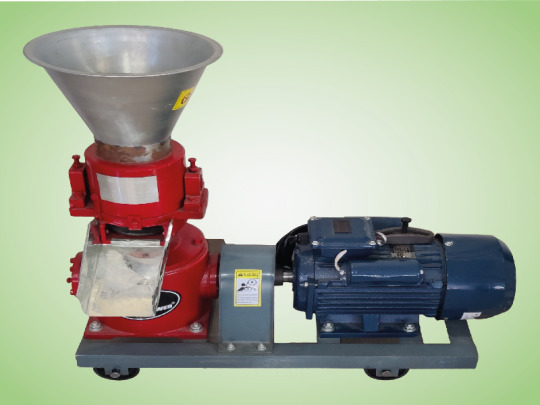
3.Brush Cutter:

4.Chaff Cutter:
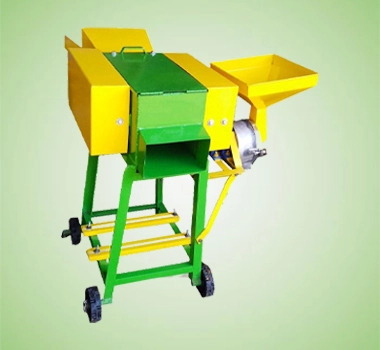
5.CHAIN-SAW:

6.Fogging Machine:

7.HOSE-PIPE:

8.GARDEN EQUIPMENTS:

9.HTP-Pump:

10. MANUAL AGRICULTURE MACHINE:

11. Milking Machine:
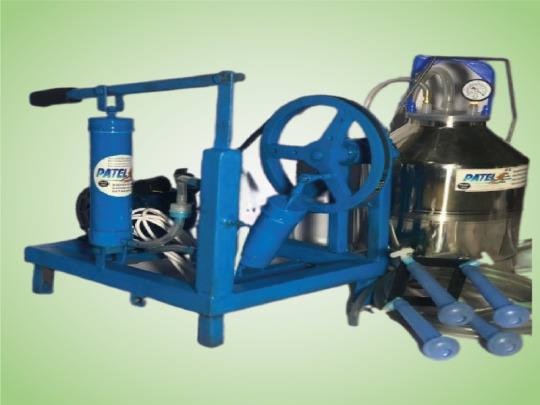
12.Rice Transplanter:
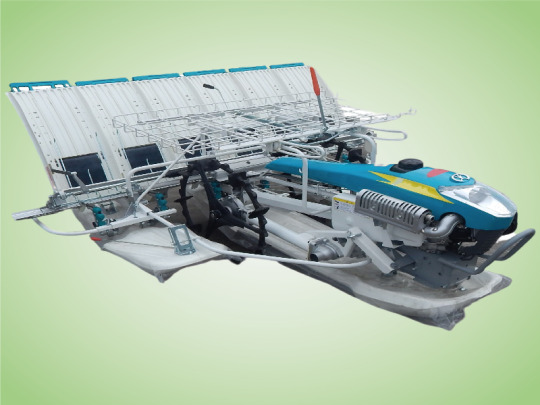
13.MINI RICE MILL MACHINE:
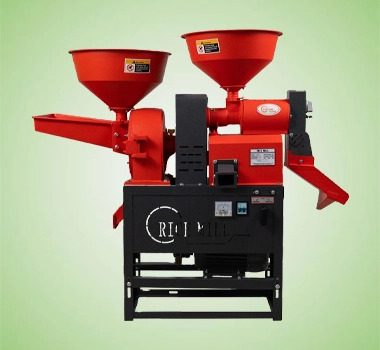
14.Power Reaper:

15.Power Weeder:

16.Soil Auger:

17.SEED DRILL:

18.Vacuum Cleaner:

Vinglob Greentech - Agriculture Equipments Manufacturers and Exporters.
Established in the year 2016, Ahmedabad, (Gujarat, India), We “Vinglob Greentech (I) Pvt Ltd” are engaged in Manufacturers and Exporters of Agriculture Equipments, Power Weeder, Power Reaper, Manual Agricultural Machinery, Garden Equiments, Animal Feed Pellet Machine, Agriculture Sprayer, Vacuum Cleaner, Hose Pipe, Chain Saw, Fogging Machine, Milking Machine, HTP-Pump, Soil Auger, Mini Rice Mill, Brush Cutter, Seed Drill, Chaff Cutter, High Pressure Washer, and Rice Transplanter etc. We are a Limited Private Company and we source products from the reliable market which can be availed from us at reasonable prices.We achieve this because we believe in providing quality not just the first time, but every time.
Useful Links
About us
Our Team
Media
Media
Contact Us
Site
Popular Products
Power Weeder
Chain Saw
Garden Tools
Agriculture Sprayer
Soil Auger
Contact Us
A/2, Bharat Small Industrial Estate, B/H. Gujarat Offset, Vatva, Ahmedabad, Pin Code :- 382445
+91-798-403-0141 | +91-990-979-3721
https://www.vgtindia.in/
#"Agriculture Equipment Manufacturer#Agriculture Equipments Supplier#Best Farming Equipments#Manufacturer
0 notes
Text
Best In Quality Rice Mill Machine Price
Annapurna Agronics Rice Mill Machine Price is excellent in class. One of the standout features of Annapurna Agronics is its competitive pricing for rice mill machines, which is considered best in class. This pricing strategy not only makes their machines accessible to a wide range of customers but also ensures that quality and performance are not compromised.

Customers who choose Annapurna Agronics can expect not only affordable pricing but also excellent customer service and technical support. The company’s dedication to customer satisfaction reflects in its reliable products and comprehensive after-sales services, making it a preferred choice in the industry.
In summary, Annapurna Agronics stands out in the market not only for its cutting-edge rice mill machines but also for offering the best-in-class pricing that meets the needs of modern rice milling operations without compromising on quality or performance.
Please contact us right now if you would like more information about our Rice Mill Machine Price and how they may benefit your work. Our staff is always available to assist and identify the finest options for your unique requirements.
Visit: https://www.annapurnaagronics.com/rice-mill-machinery/
Address: Khasra №53, 30/31, Godown №3, Near New Shri Balaji Dharam Kanta, Old G.T. Karnal Road, Bakoli, Delhi — 110036
0 notes
Text
Abida Rice: Leading Basmati Rice Manufacturer in India
Abida Rice, a part of the esteemed Baba Naga Group, has been a prominent name in the rice industry since its inception in 1983 as Baba Naga Agro Pvt. Ltd. With a strong focus and unwavering vision, the company embarked on a journey of modernization and technological advancement. In 2014, Abida Rice established a state-of-the-art manufacturing unit in Tarn Taran, Punjab, equipped with the latest technology. Today, Abida Rice takes pride in its ABIDA brand, which has become a symbol of quality and authenticity, contributing to the company's annual turnover of 300 crores in the domestic market. The company's storage capacity of 60,000 metric tons, located in Amritsar, ensures an uninterrupted supply of premium basmati rice.
Basmati rice is renowned for its unparalleled aroma, delicate texture, and exquisite flavor. It has been a staple food in India and other South Asian countries for centuries, loved for its distinct qualities. Basmati rice owes its premium quality to specific growing conditions, meticulous processing techniques, and geographical indication. In this blog, we will delve into the captivating journey of premium basmati rice, from the farm to your table, while highlighting the pivotal role played by Abida Basmati Rice, a leading rice manufacturer in Punjab, in upholding the quality and authenticity of this cherished grain.
The allure of basmati rice lies in its unique characteristics. Grown in the foothills of the Himalayas and various regions in India, basmati rice showcases slender, long grains that possess a captivating aroma. The aroma is attributed to the presence of a chemical compound called 2-acetyl-1-pyrroline (2AP), which is exclusive to basmati rice. Moreover, basmati rice boasts a non-sticky nature, enabling it to absorb flavors splendidly. As a result, it has become the preferred choice for delectable rice dishes such as biryanis and pulaos.
The journey of premium basmati rice commences with the careful selection of seeds, followed by cultivation in fertile fields with favorable climates and soil conditions. With constant monitoring and nurturing, the crops flourish, ensuring the production of superior quality rice. After harvesting, the rice undergoes a meticulous process of sun-drying, husk removal, milling, and sorting to eliminate impurities, ensuring that only the finest grains are utilized. Subsequently, the rice is packed in various sizes and shipped to destinations worldwide.
Abida Basmati Rice stands at the forefront of ensuring the quality and authenticity of basmati rice. With over four decades of experience, the company has established itself as a trusted manufacturer and exporter of premium basmati rice. Abida Rice boasts a state-of-the-art processing plant equipped with cutting-edge technology and machinery to guarantee the highest quality standards. Adhering to stringent quality control measures at every stage of production, the company ensures that its rice is free from impurities and meets international standards. Moreover, Abida Basmati Rice follows traditional processing methods, preserving the distinctive aroma, texture, and flavor of basmati rice. The company sources rice from carefully selected farms that meet its rigorous quality criteria, and it works closely with farmers to promote sustainable farming practices, utilizing only natural fertilizers and pesticides.
Choosing basmati rice over regular rice comes with numerous advantages. Its unique aroma and flavor set it apart from regular rice varieties. Additionally, basmati rice's non-sticky texture and delicate grains make it an ideal choice for a wide range of rice dishes. Furthermore, basmati rice is known for being low in fat, high in fiber, and having a low glycemic index,making it a healthier option compared to regular rice. It is worth noting that basmati rice is considered a premium variety and may be priced higher than regular rice due to its exceptional qualities.
In conclusion, Abida Rice, a leading basmati rice manufacturer in India, takes great pride in producing high-quality basmati rice that is flavorful, aromatic, and nutritious. Their commitment to quality, modern manufacturing practices, and collaboration with farmers ensures the production of premium rice that meets international standards. With Abida Basmati Rice, you can experience the journey of basmati rice from farm to table, savoring its unique aroma and delicate texture. Choose Abida Rice for an exceptional culinary experience that embodies the essence of basmati rice.
0 notes
Text
Discovering the Flourishing Basmati Rice Mills in Haryana

Haryana, a state nestled in the heart of India, boasts a rich agricultural legacy and is renowned for its bountiful harvests of basmati rice. Within this fertile land, a cluster of basmati rice mills thrives, exemplifying the region's commitment to producing the finest grains. These basmati rice mills in Haryana have become synonymous with quality, authenticity, and the unrivalled flavours that only the region can offer. Let's explore the captivating world of these mills, where tradition meets modernity and exceptional rice grains are produced with utmost care.
Preserving the Essence of Basmati
Basmati rice mills in Haryana are custodians of a culinary treasure: aromatic and long-grain basmati rice. With their unwavering dedication, these mills ensure that the inherent qualities of basmati are nurtured and preserved at every stage of production. From sourcing the finest paddy to employing cutting-edge milling techniques, these mills meticulously process the grains, unlocking their true potential and elevating the dining experiences of people around the world.
State-of-the-Art Infrastructure:
Equipped with state-of-the-art infrastructure and modern machinery, basmati rice mills in Haryana have embraced technology to enhance efficiency and maintain consistent quality standards. The mills employ advanced sorting, grading, and packaging systems, enabling them to deliver rice grains that meet the stringent requirements of both domestic and international markets. This technological prowess has played a crucial role in establishing Haryana as a global hub for basmati rice.
Ensuring Quality through Stringent Controls:
Quality control is the cornerstone of these mills. They implement stringent measures to guarantee that each grain surpasses the highest standards of taste, texture, and purity. Rigorous quality checks are conducted at various stages of production, ensuring that only the finest basmati rice reaches consumers' plates. With their unrelenting focus on quality, these mills have earned the trust and loyalty of rice enthusiasts worldwide.
Empowering Farmers and Promoting Sustainability
Basmati rice mills in Haryana recognize the indispensable role of farmers in the cultivation of basmati rice. They actively collaborate with local farming communities, offering guidance, training, and fair prices for their produce. By promoting sustainable agricultural practices, encouraging responsible water management, and adopting eco-friendly technologies, these mills serve as champions of both the environment and the livelihoods of farmers.
Exporting Excellence:
The exceptional basmati rice grains produced by these mills find their way to the plates of people across the globe, enriching cuisines with their distinctive flavour and aroma. With their adherence to international food safety standards, these mills have positioned Haryana as a preferred supplier in the global basmati rice market. The grains from these mills have become the choice of discerning chefs, esteemed restaurants, and households that appreciate the finesse of basmati rice.
Preserving Cultural Heritage:
Basmati rice has transcended boundaries, becoming a cultural ambassador for India. The basmati rice mills in Haryana play a pivotal role in preserving and promoting this cultural heritage. By crafting grains of unparalleled quality and authenticity, they keep the culinary traditions alive and vibrant, enabling people from diverse cultures to savour the essence of Indian cuisine.
Conclusion:
The Basmati rice mills in Haryana embody the perfect blend of tradition, innovation, and unwavering dedication. They are the custodians of basmati rice's legacy, meticulously transforming paddy into grains of exceptional quality. These mills contribute to the economic growth of the region, empower farmers, and create culinary delights that captivate palates worldwide. As the sun sets on the vibrant fields of Haryana, the basmati rice mills continue to thrive, perpetuating the legacy of excellence and reminding us of the rich cultural heritage that resides within each grain of basmati rice.
0 notes
Photo

Domestic Combined Rice Mill With Pulverizer Hammer Mill 3HP Electric Motor - Krishitool.com
Book Now : https://www.krishitool.com/product-details.php?item_id=1917
Contact us : 9641377575
#combined rice mill machine#Combined Domestic Rice Machine#Automatic Mini Rice Machine#Combined flour and rice mill#Rice Mill Combine#combined rice and flour mill#rice mill machinery price list in india#combined rice mill price in india#mini rice mill price in kolkata#mini rice mill machine price in india#modern rice mill machinery price#mini rice mill 3hp#Mini Rice Mill#Rice Mill Plant#Flour Mill-Rice MIll Plant#Rice Mill Machinery#Combined Mini Rice Mill#Rice Mill#rice milling machinery#rice milling machine#top 10 rice mill in india#rice mill price in india#rice mill plant#rice mill price in assam#rice mill machine price list#rice mill machinery list#commercial rice mill machine price
1 note
·
View note
Link
On November 26, 2020, approximately 250 million people in India united for a historic strike. The reason? A series of three new agricultural laws that could prove devastating to the livelihood and existence of local farmers, and hold the potential to make the global trade of cotton even more embroiled in devastating labor practices than it is already.
The laws were passed in September by Prime Minister Narendra Modi's government. They privatize the crop market and deregulate pricing, meaning that companies are able to undercut family businesses and push them out of the market, in turn contributing to crippling worker debt and a suicide rate among Indian farmers that is already devastatingly high. Peaceful protests calling for repeal have been occurring ever since the laws were passed, often resulting in police brutality featuring tear gas, water cannons, and batons.
In India’s previous system, crop prices were decided through government-regulated markets called Mandis. It was at these markets where a crop's Minimum Support Price (MSP) was decided, a practice in place to protect farmers from pricing fluctuations. The MSP was given for any crop that the government considers profitable, usually based on recommendations from the Commission for Agricultural Costs and Prices (CACP) and taking into account overheads (seeds, fertilizers, fuel, the value of unpaid family labor, rent, land interest, machinery costs etc). There are over 25 different crop types listed on the CACP, and two of them are cotton.
"India has one of the highest production rates of cotton on the farm side of things,” says Nishanth Chopra, who founded the womenswear label Oshadi in 2015. Chopra's brand is more of a collective, one with a “seed-to-sow” perspective and a fully traceable supply chain that (as we discuss later) should become the template for the global fashion industry. When I ask him how the farmer’s protests could connect to the production of cotton, he explains, “the same farmer who is farming rice, sugarcane and a lot of those crops is probably rotating it with cotton. So if those crops are affected, cotton gets affected as well. It's intertwined.”
Harjinder Singh is one such farmer. He told The New York Times recently that he traveled 600 miles from Gujarat, where he farms wheat and cotton, to New Delhi to join the protests. “I’ve got 100 acres there,” he said, “and now I’ve turned it into barren land because of the government’s rude policies.”
The policies also criminalize residue burning, a ritual that involves taking a match to fields after harvest because cleaning a farm by hand is extremely labor-intensive and expensive. “They just light it up,” Chopra explains, “so it burns overnight and next morning you have a clean field.” That ritual is now a crime. Environmentally speaking “it’s a good move, but it doesn't have a solid support system for the farmers to switch to. What are farmers going to do? They can't afford to go clean that stuff. They’re helpless. Who's going to help them take all the harvest? Who's going to pay them for cleaning it? You only pay them to harvest cotton, you don't pay them to clean the fields. When someone's paying a price for something, it's not for cleaning, it's for the product. The government needs to bring in systems to actually make it practical. That's why all these issues are arising and there's so much protest.”
His point about who really pays the price for product is one that should hit home for all of us, particularly given the alarming reports concerning fashion’s connections to the forced cotton farming labor currently going on in China. A report by Washington’s Center for Global Policy published last week found that over 570,000 people belonging to China’s Uighur minority are being forced to work in Xinjiang cotton farms, which supply one-fifth of the world’s cotton. As Business of Fashion put it, “20 percent of the world’s cotton. Half a million modern slaves.”
Policies and regimes such as these benefit from — or, arguably, can only operate thanks to — a total lack of transparency in the global textile industry supply chain. In the same article, BoF wrote of how luxury groups like Kering (Gucci, Saint Laurent, Balenciaga), Zara-owner Inditex, Nike, and Lacoste, are unable to confidently say that their brands do not use Xinjiang cotton. Overwhelmingly, the answer was “not that we know of.” Largely, the reason for this is that brands rarely purchase raw materials or weave fabric (denim, canvas, etc) themselves. Cotton is traded in huge quantities “alongside commodities like cocoa and gold, a long way down the ladder from where fashion brands usually operate.” What’s more, “supply chains are constantly changing as product specifications evolve, and as opportunities to source components at the best price jump around the globe.”
This price jump, aka quest for the cheapest deal, brings us back to India’s farmer protests, and the incredible work Chopra’s Oshadi brand is doing to eliminate the exploitative murky middle ground.
"India is one of the highest polluting countries in the world," Chopra continued, "and it's because of residue burning and things like that." (Per Bloomberg, two-thirds of the world’s most polluted cities are in India.) He grew up in Tamil Nadu, “one of the biggest textile hubs in India. Every 13th person here has cancer. It has one of the highest infertility rates in India."
So, he set out to start a brand that taps into traditional Indian farming techniques as a way to do his part to enact change. He spent time in remote villages and forests to learn artisanal practices and then partnered with local communities as a way to create and include. He linked with weavers, dyers, and block printers to produce his collections. Then he opened his own farm and partnered with the farmers, rather than issuing a contract. "We realized that ancient Indian agriculture can solve all these problems. By doing it ourselves we can make sure that agriculture imitates the forest. It becomes more economical for farmers. It becomes better environmentally and socially.”
His farm is rooted in regenerative agriculture, a practice that is good for the plants, the soil, the organisms in the soil, farmers, and the consumer. In layman’s terms, regenerative agriculture intends to replenish and strengthen the soil to wield a healthier outcome for everyone involved. Rather than cultivate field upon field of one specific crop, this system implements crop diversity so the soil is nutrient-rich and thus plays into the earth’s natural cycle of soil trading carbon with the atmosphere. Soil needs carbon to store water and feed plants; excess carbon in the atmosphere is the cause of global warming, rising sea levels, and extreme changes in the weather. Modern farming practices make this worse as they leave massive areas of land stripped, barren, and burnt, meaning soil can’t effectively absorb carbon.
His collective "follows the laws of farming that are more permanent,” says Chopra, “that restore the local ecosystem while also ensuring a premium price for the farmers we work with.”
Oshadi could be seen as a label that continuously questions and then problem solves. “We experimented with so many materials like Tencel, hemp, linen, and organic cotton. Then we realized organic cotton is not really organic cotton (cotton without pesticides). If you go to any mill in India, you'd be able to find tons and tons of organic cotton any given time of the year, even now. How do they have tons of it in stock? In Corona times, half of the farms are down, yet you still get the same amount of cotton everywhere.” His conclusion? “There's no real organic cotton in the market.”
When I ask him to expand on that point, he gives the following example. “Let's say you [apply to get an organic cotton] certificate. Most of the information has to be entered by the client that is requesting that certification. It makes absolutely no sense. Think about it. If you ask me, ‘how am I as a human being?’ I would, of course, not tell you the things that are wrong about me, but that's exactly what all the certifications are doing. They want you to self-audit. It doesn't work that way in India. People cut corners all the time. You want a GOTS (Global Organic Textile Standard) certificate? You can just buy it.”
It goes hand-in-hand with Chopra’s nature that he’s thinking about a solution for this, too. He suggests that the government makes a technological system through which every company must run its entire supply chain. Anything less than that would be marked as a criminal offense. “Leaving dyes and chemicals on farmland? You're killing the soil and in turn, you're killing yourself — you eat that stuff and you wear that stuff. It's like a crime, you see? It's a slow poison.
"But people never classify it as a crime. People just think it's okay, they just ignore it. Humans have this biased look. They look at their own child in a different way than the way they look at a neighbor's child. I think the individualistic mindset is what's driving all these things. Like, 'I want to be first. I want to be myself. This is my company and I want it to succeed. I want to make billions. I want to do those things and it's me, me, me.’ They just don't realize that their lives are so intertwined with each other.
"If someone is having a great life in the US, in New York, and buying 100 shirts every month, they don't know that 10 farmers are working on the farm in the scorching heat. People have just no relation. No one knows. They don't know what's behind these things. I think that's why people end up being ignored and biased. They don't have the information."
#Oshadi's Nishanth Chopra#global organic textile standard#india#streetwear blog#fashion blog#supply chains
0 notes
Text
The Things To Keep In Mind When Exporting Rice
PJS Overseas Ltd is one of the top and leading manufacturers and exporters of Indian basmati and non-basmati rice. They have been in this business for more than three decades now and the years of experience which they have amassed have made them a name to be reckoned with.
In such cases, of course, they had to keep several factors in mind so as to head the name of elite exporters of ricer from the country. Here let us see as to what are the main perquisites which you should be mindful of when you are looking to export rice.
The quality factor
Whenever you are exporting any product, the quality assumes gargantuan importance. As a firm looking to export rice, PJS Overseas makes it a point to procure paddy from different states simply to ensure that it is of the best possible quality.
Choosing high quality paddy is one of the first ways to ensure that you can get the right quality of rice.
The processing
Simply procuring raw materials is not enough as you need to make sure that the production process is thoroughly inspected too. This is why PJS Overseas makes sure that their machineries are all updated; conforming to the latest standards, and at par with the modern arms. They invest in the best kind of machineries which mill the paddy in an efficient way and thereby offer the finest output.
It is this systematic work process which has helped PJS Overseas emerges at the very top of the ladder.
The packaging
There is no way companies can be casual when it comes to packaging of stuff. This is the reason; PJS Overseas makes it a point to put immense emphasis on the type of packaging they do. They offer different sizes of rice packets and at the same time, they take care of all safety precautions to ensure that the product is not damaged in transit.
The pricing
Like all products, even when it comes to rice, the market is surely price driven. One cannot get complacent with the pricing structure. This is the reason, PJS Overseas makes sure to analyze the market thoroughly, study the trends, do a meticulous analysis and then finalise the pricing. It is their justified pricing which has made them such a name to be reckoned with.
Owing to these factors, Brickworks which is a SEBI rated agency has reviewed *PJS Overseas Credit Rating* in a positive light. This has pushed the reputation of the company even more and it has brought them immense acclaim even in the export circuit.
So, when you are looking to carve your name in the export arena, you have to ensure that you do everything right, just like PJS Overseas have been doing. They have an astounding track record to prove their work so far and they are hopeful of carrying forward the good work in the times to come.
No doubt, other companies and competitors have a lot to learn from them.
0 notes
Text
DA NorMin hands over P6.3-M agri interventions to Lanao del Norte
#PHinfo: DA NorMin hands over P6.3-M agri interventions to Lanao del Norte
KAPATAGAN, Lanao del Norte, Nov. 3 -- Department of Agriculture - Regional Field Office 10 (DA-RFO 10) Regional Executive Director Carlene C. Collado formally handed over to the Provincial Government of Lanao del Norte the P4.8 million fully operational seeds warehouse and P1.5 million drone sprayer on Tuesday, October 27.
Construction of the warehouse and provision of the drone sprayer are funded under the DA's National Rice Program.
The granting of the drone sprayer is part of DA-10’s farm modernization projects in the region. The sprayer is useful in automating fertilizer application in rice fields at 5-10 minutes per hectare field capacity.
The intervention is a pilot project of DA-10 in Lanao del Norte subject to cost-efficiency assessment and feedback from the recipients before widespread implementation.
Meanwhile, the 300-square meter warehouse rises inside Lanao del Norte’s Provincial Nursery and Seeds Farm (PNSF) in Kapatagan town with a storage capacity of 306 metric tons.
It is strategically situated and accessible to the municipalities of Sultan Naga Dimaporo, Lala, Sapad, Tubod, Baroy, Nunungan, Salvador and Baroy.
It will be utilized to shelter DA-granted farm equipment, farm inputs such fertilizers and seeds, and harvested palay of bonafide farmers in the province.
The said warehouse will also serve as field office of the province’s Agricultural Technicians (ATs) and Agricultural Extension Workers (AEWs).
In his message, Director Collado commended the Provincial Government of Lanao del Norte in its effort of helping the rice farmers in the province by buying their produce at a higher rate, amid the plunging palay farmgate price.
He urged the Provincial Agriculture Office to propose for the establishment of more and bigger rice mills in the province, enabling the province to independently produce its own market and consumption-ready rice supply.
“As the national winner of the Rice Achiever Awards, Lanao del Norte should continually strive to upscale its rice production programs. You need to pinpoint the agricultural assistance needed by our farmers, especially in this pandemic. Propose the desired projects, so that we will be able to allocate the required funding,” Collado called unto the local agriculturists.
“As food security frontliners, we need to stay active in mobilizing assistance needed by our farmers amid the uncertainties of this crisis. We need to ensure food security,” he stressed.
For her part, Letecia G. Ditucalan, Lanao del Norte’s Provincial Agriculturist said, the warehouse will be optimally utilized to secure the farmers' seeds, providing them proper storage facility.
“We are grateful of DA-10 for granting us this project. We dream of this facility to resemble DA-10’s research center. The construction of this warehouse is a step closer to that dream,” Ditucalan accounted.
In 2021, Lanao del Norte will be granted another agri infrastructure project from DA-10 for the construction of a P10 million cold storage in Lala, Lanao del Norte.
“This facility is of great help in protecting our farmers’ seeds, machineries and equipment. However, to help solve our farmers' problems we need to think outside the box, work together, and go the extra mile in serving our farming constituents,” Audy G. Maagad, DA-10’s Field Operations Division OIC-Chief remarked. (DA-10)
***
References:
* Philippine Information Agency. "DA NorMin hands over P6.3-M agri interventions to Lanao del Norte." Philippine Information Agency. https://pia.gov.ph/news/articles/1057934 (accessed November 03, 2020 at 07:38PM UTC+08).
* Philippine Infornation Agency. "DA NorMin hands over P6.3-M agri interventions to Lanao del Norte." Archive Today. https://archive.ph/?run=1&url=https://pia.gov.ph/news/articles/1057934 (archived).
0 notes
Text
The Miscellany
Publisher: AGEMA
COVERED IN THE MISCELLANY, which is a supplement for The Glory of Kings 18th century campaign game (but will be of interest to all 18th century enthusiasts!): Army sizes / Western Army ratios / Western infantry / Light cavalry tactics / Camp followers / Multi-stage Chinese Rockets / Improved bandoliers / Musket stock cavity / Musket slings / Improved bullets / Thin overcoats / Climbing equipment / Alternative grenade / Gaiters / Composite Bows / The Yumi Bow / Uhlan lances / Belidor Theory & Mortars and Howitzers / Japanese Massed Area Levy / Chinese Artillery, Muskets & Gunpowder / The Reichsarmee / Lancers, wedge formation or line, which is better? / Gendarmes Anglais / Magazines & being low on gunpowder (using magazines) / Lorenzoni Repeater Pistol / Lanyard or sword strap / Licorne howitzer gun / Grappling hooks / Mobile field ovens / Jazayechis & Dragoons / Pikes / Swedish cavalry wedge formation / Breechloading cannon / Liuyedao / Improved valves / Greek Fire / Q&A / The Royal Navy / Why do the Dutch not have 90+ gun ship of the line available? / Armed liners / Naval cannon gunsights / Belidor Theory for naval use / Diving bells and diving suits / Submarines / Review Boards / Ship plans / Gunports, gun ropes & ringbolts / Improved sail / State barges / White Stuff / Repainting ships / Ship lengths / Dogger trawlers / Rope ramrods / Great frigates & overhauling merchantmen / Modern Junk Rigging / Barge Transportation / South Coast Harbours 1698 Map Project / Piracy, Trade & the Adriatic / Military Sappers & Miners / Wharfs / Blockhouse / Sewerage treatment plants / Hydraulic lime / Road surface improvements / Fortification construction / 48 pounder cannon / Theodolite / Colonial Administration & Taxes in the Colonies / Improved education / Boarding schools / Improved oil painting techniques / Improved sculpture techniques / Improved methods of orchestration / Improved choreography / Town criers / Illegitimacy and Kingship in Catholic Europe / Serfdom in Denmark / ‘Villeinage and Stavnsband’ / Real or Royal Tennis / Notes on Japan / The Bill of Rights 1689/ The Union of Lublin 1569 / Undated Treaties / Consulate / Secret codes / Forging rings of office / The Bank of Sweden / The Bank of St. George / Red Seal Ships / Increasing fish stocks/ Physiocracy / Cardings / Greenhouses / Preserving food / Cotton Gin / Bleaching / Silk / Yue Xiu & Guang Xiu Chinese silk embroidery / Indigo dye research breakthroughs / Indigo in the Americas / Improved Tobacco / Livestock replenishment / Animals for food / Angora Rabbits /Rice harvest development research breakthroughs / Pot Stills / Duillier ruby drilling / Improved perfumes / Eau de Cologne / Improved blended tea / Improved Porcelain Glazing & Colouring / Cloisonne / Superior hops / Lager / Palinka / Alcohol in China / Ridged dogs / Animal feed / Hessian Fly / The American Colonies & Crops / Grain Inspectorate / Automatic Flour Mills / Improved Pastry-making / Threshing Machinery / Prospectors / Geological surveys / The Gallican Church / Nikon’s Reforms / Orthodox churches in 1700 / The Lutheran Church in Hanover / Dentistry / Field Dressings / Veterans Hospital / Smallpox in Japan / List of the plants of Abyssinia / Imperial Free Cities / Flanders / The Succession in England /The Republic of Bou Regreg / Duchy of Savoy-Piedmont / Venezuela / Kwantung Western Frontier / Bhutan / Portuguese East Africa / States of the Caucasian Mountains region / Southern Russia/ Comanche / Yamasee Indians / Recruiting Post / Martin Charbonnier / Jakob Ammann / Sir Donald MacDonald, 4th Baronet of Sleat / Rob Roy / Bartolomeo Cristofori / Giuseppe Domenico Scarlatti / Nicolas Fatio de Duillier / Pierre Fauchard / Joao Frederico Ludovice / George Graham / Apostolo Zeno / Johann Bernoulli / Andrey Nartov / Johann Jacob Kuchenreuter / Antoine-Tristan Danty d'Isnard / Doctor Emmanuel Timoni / Johannes Vermeer / Antonio Bernacchi / Francesco Bernardi/ Abraham Samuel / Jonathan Sisson
Price: $8.34 The Miscellany published first on https://supergalaxyrom.tumblr.com
0 notes
Text
More interventions for farmers affected by rice tariffication
#PHnews: More interventions for farmers affected by rice tariffication
MANILA – Department of Agriculture (DA) Secretary William Dar on Tuesday assured more interventions would be given to farmers affected by the implementation of the Rice Tariffication Law (RTL).
To ensure the proper and efficient implementation of the RTL, Dar said the DA is committed to fast-track the various components and interventions under the PHP10-billion Rice Competitiveness Enhancement Fund (RCEF).
"We have started the RCEF seed distribution, conduct trainings, bidding for machinery, alongside the validation of farmers' cooperatives, and processing and granting of loans," Dar said in his first 100 days report since he assumed office.
Dar said implementing the RTL is both a "challenge and an opportunity to transform our traditional rice lands into modern farming communities through the annual PHP10-billion resources that RCEF provides."
He said this year's RCEF has been allocated to make rice farmers more competitive and to prop up prices of palay, which has dropped to 1.4 percent in the third week of September to PHP15.96 per kilogram, based on the Philippine Statistics Authority (PSA) data.
The DA chief said President Rodrigo Duterte also approved the granting of PHP3 billion as unconditional cash assistance to benefit 600,000 rice farmers tilling one hectare and below.
Dar said additional PHP3-billion cash assistance will be allotted next year for rice farmers tilling 1.01 hectares to two hectares.
Another PHP2.5 billion was also allocated for the expanded Survival and Recovery Assistance (SURE) Aid Program wherein PHP15,000 zero-interest loan payable in eight years will be available to affected farmers tilling one hectare or less.
The National Food Authority (NFA) was also given PHP7-billion budget to buy palay directly from the farmers, of which some 10.25 million bags were procured.
In partnership with provincial government units, governors of the top 33 rice-producing provinces have committed an initial PHP5 billion to procure palay from their farmers, and dry and mill the grains into rice, and sell them directly to their constituents and institutional buyers.
Dar said the amount is on top of the PHP3.5 billion credit line the local governments of Isabela, Nueva Ecija, and Camarines Sur have secured from the Land Bank of the Philippines to bankroll palay procurement and related rice industry chain initiatives.
On the issue of rampant rice smuggling, Dar said they are conducting investigations together with concerned government agencies, which include the possible collusion between DA personnel and traders.
"May kutsabahan, meron kaming iniimbestigahan, even our men and women sa department, nagkukutsabahan so nakakalusot (There is collusion. We are investigating our own men and women in the department, they are in collusion [with traders] so [smuggled items] slip past authorities)," he said.
Dar said the DA is working with authorities to resolve the "huge" illegal entry of imported rice.
"Maraming dumating na imported na bigas na walang import clearance or used recycled clearance kaya kinumpiska ang mga ito ng Bureau of Customs (A huge volume of imported rice arrived in the country but without import clearance or have used recycled clearance so these were confiscated by the Bureau of Customs)," he said.
Dar said the smuggled rice is not included in the 2.9 MMT of imported rice recorded entered the country from January to October 30 this year.
Despite the challenges, Dar committed to pursuing imperatives with greater vigor and "laser-like'' focus to enable Filipino farmers and fishers to be more prosperous and transform them into agri-preneurs.
"Truth be told, the first 100 days have not been easy. {But) we have made a strong beginning, we have only just begun," he said. (PNA)
***
References:
* Philippine News Agency. "More interventions for farmers affected by rice tariffication." Philippine News Agency. https://www.pna.gov.ph/articles/1086497 (accessed November 20, 2019 at 04:10AM UTC+14).
* Philippine News Agency. "More interventions for farmers affected by rice tariffication." Archive Today. https://archive.ph/?run=1&url=https://www.pna.gov.ph/articles/1086497 (archived).
0 notes
Text
The Miscellany
Publisher: AGEMA
COVERED IN THE MISCELLANY, which is a supplement for The Glory of Kings 18th century campaign game (but will be of interest to all 18th century enthusiasts!): Army sizes / Western Army ratios / Western infantry / Light cavalry tactics / Camp followers / Multi-stage Chinese Rockets / Improved bandoliers / Musket stock cavity / Musket slings / Improved bullets / Thin overcoats / Climbing equipment / Alternative grenade / Gaiters / Composite Bows / The Yumi Bow / Uhlan lances / Belidor Theory & Mortars and Howitzers / Japanese Massed Area Levy / Chinese Artillery, Muskets & Gunpowder / The Reichsarmee / Lancers, wedge formation or line, which is better? / Gendarmes Anglais / Magazines & being low on gunpowder (using magazines) / Lorenzoni Repeater Pistol / Lanyard or sword strap / Licorne howitzer gun / Grappling hooks / Mobile field ovens / Jazayechis & Dragoons / Pikes / Swedish cavalry wedge formation / Breechloading cannon / Liuyedao / Improved valves / Greek Fire / Q&A / The Royal Navy / Why do the Dutch not have 90+ gun ship of the line available? / Armed liners / Naval cannon gunsights / Belidor Theory for naval use / Diving bells and diving suits / Submarines / Review Boards / Ship plans / Gunports, gun ropes & ringbolts / Improved sail / State barges / White Stuff / Repainting ships / Ship lengths / Dogger trawlers / Rope ramrods / Great frigates & overhauling merchantmen / Modern Junk Rigging / Barge Transportation / South Coast Harbours 1698 Map Project / Piracy, Trade & the Adriatic / Military Sappers & Miners / Wharfs / Blockhouse / Sewerage treatment plants / Hydraulic lime / Road surface improvements / Fortification construction / 48 pounder cannon / Theodolite / Colonial Administration & Taxes in the Colonies / Improved education / Boarding schools / Improved oil painting techniques / Improved sculpture techniques / Improved methods of orchestration / Improved choreography / Town criers / Illegitimacy and Kingship in Catholic Europe / Serfdom in Denmark / ‘Villeinage and Stavnsband’ / Real or Royal Tennis / Notes on Japan / The Bill of Rights 1689/ The Union of Lublin 1569 / Undated Treaties / Consulate / Secret codes / Forging rings of office / The Bank of Sweden / The Bank of St. George / Red Seal Ships / Increasing fish stocks/ Physiocracy / Cardings / Greenhouses / Preserving food / Cotton Gin / Bleaching / Silk / Yue Xiu & Guang Xiu Chinese silk embroidery / Indigo dye research breakthroughs / Indigo in the Americas / Improved Tobacco / Livestock replenishment / Animals for food / Angora Rabbits /Rice harvest development research breakthroughs / Pot Stills / Duillier ruby drilling / Improved perfumes / Eau de Cologne / Improved blended tea / Improved Porcelain Glazing & Colouring / Cloisonne / Superior hops / Lager / Palinka / Alcohol in China / Ridged dogs / Animal feed / Hessian Fly / The American Colonies & Crops / Grain Inspectorate / Automatic Flour Mills / Improved Pastry-making / Threshing Machinery / Prospectors / Geological surveys / The Gallican Church / Nikon’s Reforms / Orthodox churches in 1700 / The Lutheran Church in Hanover / Dentistry / Field Dressings / Veterans Hospital / Smallpox in Japan / List of the plants of Abyssinia / Imperial Free Cities / Flanders / The Succession in England /The Republic of Bou Regreg / Duchy of Savoy-Piedmont / Venezuela / Kwantung Western Frontier / Bhutan / Portuguese East Africa / States of the Caucasian Mountains region / Southern Russia/ Comanche / Yamasee Indians / Recruiting Post / Martin Charbonnier / Jakob Ammann / Sir Donald MacDonald, 4th Baronet of Sleat / Rob Roy / Bartolomeo Cristofori / Giuseppe Domenico Scarlatti / Nicolas Fatio de Duillier / Pierre Fauchard / Joao Frederico Ludovice / George Graham / Apostolo Zeno / Johann Bernoulli / Andrey Nartov / Johann Jacob Kuchenreuter / Antoine-Tristan Danty d'Isnard / Doctor Emmanuel Timoni / Johannes Vermeer / Antonio Bernacchi / Francesco Bernardi/ Abraham Samuel / Jonathan Sisson
Price: $8.34 The Miscellany published first on https://supergalaxyrom.tumblr.com
0 notes